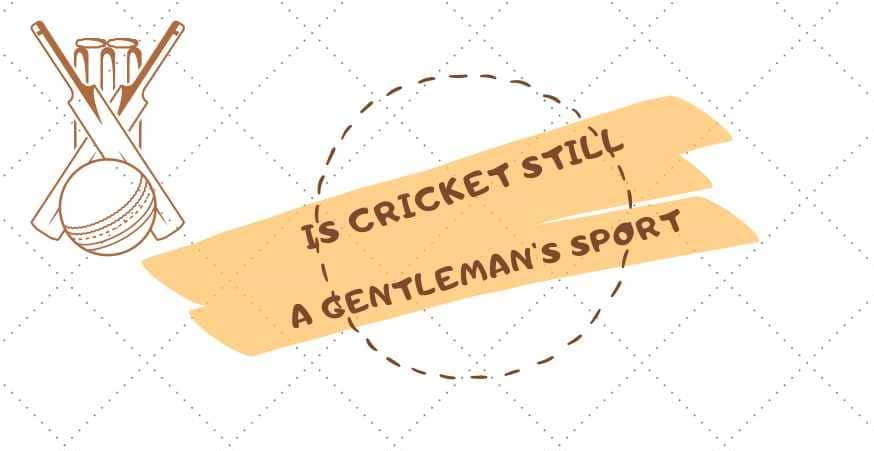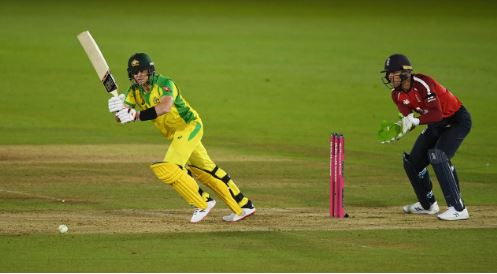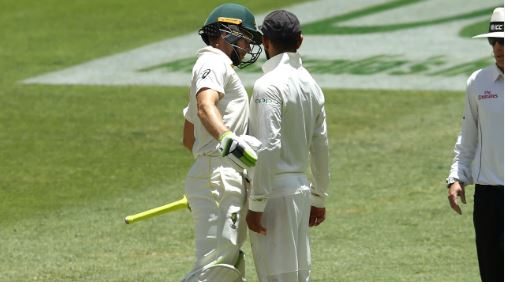Is Cricket Still A Gentleman's Sport?
Cricket, as the saying goes, a game “for gentlemen, played by gentlemen”, or at least, that is the socially accepted consensus.
From its origins dating back to the 17th century as an adult sport (despite beliefs that there was a form actually played by children in France as far back as the 13th century), has though, had its fair amount of controversy over the centuries and certainly over the last couple of decades.

Indeed, the derivation of the word ‘cricket’ is understood have Middle Dutch roots, with the actual word ‘Krick’ meaning stick, though suggestions imply that the Old English words of ‘Cricc’ or ‘Cryce’ translated to crutch or staff, while the French influence brings the word ‘criquet’ into it – wooden post.
Controversy about the sport actually first arose in the 17th century in 1611 when two men in Sussex, England were understood to have been prosecuted for playing the sport on a Sunday instead of going to church.
Typically, the sport though was established with a set of principles that were fundamentally about respect and fairness between two opposing teams, committed to following a set of rules throughout the duration. In some respects it also shares similar philosophies to the game rugby.
Of course now, as the world has moved on, the sport is more in the spotlight due to media attention and there are other various aspects that can affect matches such as betting on games where players might feel pressure to perform due to the odds that are offered on them to win and the bets that are made by their fans.
How Has Cricket Become More Controversial Over The Last Couple Of Decades?
As cricket has developed, especially on the international stage, this has bred obvious rivalries that have led to certain instances that has led to some flouting of the principles that were essentially put in place to last.
At the turn of the century, we witnessed a particular amount of ‘sledging’ with players, especially between those representing England and Australia, which effectively went completely against the rulebook.
In fact, the Australian national cricket team became particularly consistent at this, often the tactic working in their favour, though, certainly it started to sully cricket’s image as a “gentlemen’s sport”.

Examples Of Sledging
Legend Shane Warne was certainly one who split opinion, usually being able to give out the abuse as well as take it. One example was a test match between Australia and South Africa when the prolific Springbok batsman, Daryll Cullinan returned from injury and Warne was salivating.
“I’ve been waiting two years for the opportunity to humiliate you in front of your own crowd” Warne told Cullinan.
To which the South African’s effacious reply was: “Looks like you spent it eating”.
Perhaps one of the most famous examples of sledging, thus going against the ‘gentlemanly conduct’ was between Viv Richards and Greg Thomas.
The latter was bowling impressively and uttered to Richards: “It’s red, it’s round, now f****** hit it”.
A few seconds later, following his bowl, Richards replied in devastating fashion, batting it out of the ground. His riposte seemingly appeared more than justified: “You know what it looks like, now go and find it”.

There have been other examples of sledging in cricket, that haven’t necessarily involved gameplay action, more what has been said between matches, or about upcoming matches by players and coaches alike.
Political Gamesmanship
One in particular, was accused of having potentially serious connotations, that suggested an attempt to manipulate a scenario.
Australia captain Mitchell Marsh was in a spot of bother when it appeared that there were accusations that he and his team were completing the chase of innings slower against certain teams to effect the progression of rivals.
The situation centred on how Australia might be able to influence Scotland’s advance at the expense of England.

Controversy arose when Australian-born England coach Matthew Mott said he hoped Scotland’s Josh Hazelwood’s comments , were just “tongue in cheek”, when asked whether he thought Australia’s tactics to make it hard for England, by influencing the run-rate against Scotland and he essentially replied with: “Yeah, I think so”.
However, Scotland international elaborated in a way that suggested it was, as Mott hoped, the comments were “tongue in cheek”.
Hazlewood went on to say: “In this tournament you potentially come up against England at some stage again and we’ve had some real struggles against them in T20 cricket so if we can get them out of the tournament that’s in our best interest as well as probably everyone else.
“Whether you get close and you just knock it around and drag it out, there’s a few options there.”
Mott replied: “Knowing Josh, he has got a pretty dry sense of humour,” said Mott, who added he would not use such tactics in a reverse scenario.
“I am hoping it was very much tongue in cheek.”
Will Cricket Move Back to Its Roots?
With the widespread presence of media now, not just in the world, but also sport and certain sports – cricket itself is one of the biggest played and followed after football, so it is forever in the spotlight.
Further, with the amount of money in the game now, especially when you factor in the T20 and other tournaments by way of prize purses and increasing salaries based on sponsorship, the thought that cricket might revert back to being a game “for gentlemen, played by gentlemen”, certainly on a consistent basis, is perhaps ambitious.
However, apart from certain, isolated incidents, it does appear that cricket on the whole can be considered a gentlemen’s sport, with a little bit of rogue thrown in for good measure.
